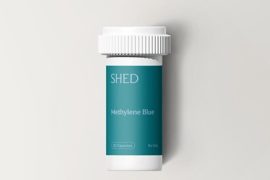Heartburn, characterized by a burning sensation behind the breastbone, is often caused by factors such as acid reflux, alcohol consumption, spicy foods, and overeating. The condition occurs when stomach acid flows back into the esophagus, leading to discomfort. While heartburn may not always indicate a serious issue, adopting certain habits can help prevent it. Avoiding maida-based foods and chewing food slowly before swallowing are recommended practices. Chewing food thoroughly aids in digestion and prevents undigested food in the stomach, emphasizing the importance of mindful eating to mitigate the risk of heartburn.
Tips that are helpful in preventing heartburn:
- Avoiding Maida-Based Foods: Maida, or refined flour, can contribute to heartburn. Opting for whole grains and fiber-rich foods is a healthier choice.
- Chewing Food Slowly: Chewing food thoroughly aids in digestion and helps prevent undigested food from causing acid reflux.
- Not Eating Close to Bedtime: Giving your body at least three hours to digest food before lying down can reduce the likelihood of stomach acid flowing back into the esophagus while sleeping.
- Identifying Trigger Foods: Citrus fruits, chocolates, and tomatoes are known triggers for heartburn. It’s advisable to be mindful of such foods and minimize their consumption, especially if prone to acid reflux.
- Maintaining a Balanced Diet: A well-balanced diet with fruits, vegetables, and whole grains helps maintain the body’s alkaline balance, potentially reducing the risk of heartburn.
- Avoiding Alcohol and Smoking: Both alcohol and smoking can relax the lower esophageal sphincter, allowing stomach acid to flow back into the esophagus, leading to heartburn. Avoiding these triggers is beneficial.
- Baking Soda for Heartburn: Baking soda (sodium bicarbonate) is alkaline and can help neutralize stomach acid. However, its use should be cautious, and it’s advisable to consult with a healthcare professional before trying it regularly.
It’s important to note that while these lifestyle changes can be effective in managing mild cases of heartburn, persistent or severe symptoms should be evaluated by a healthcare provider. Chronic acid reflux can lead to complications, and a medical professional can provide personalized advice and treatment options based on the individual’s health condition.
Disclaimer:
The information contained in this article is for educational and informational purposes only and is not intended as a health advice. We would ask you to consult a qualified professional or medical expert to gain additional knowledge before you choose to consume any product or perform any exercise.







